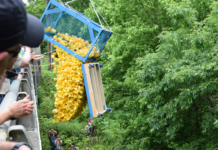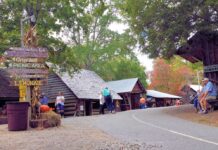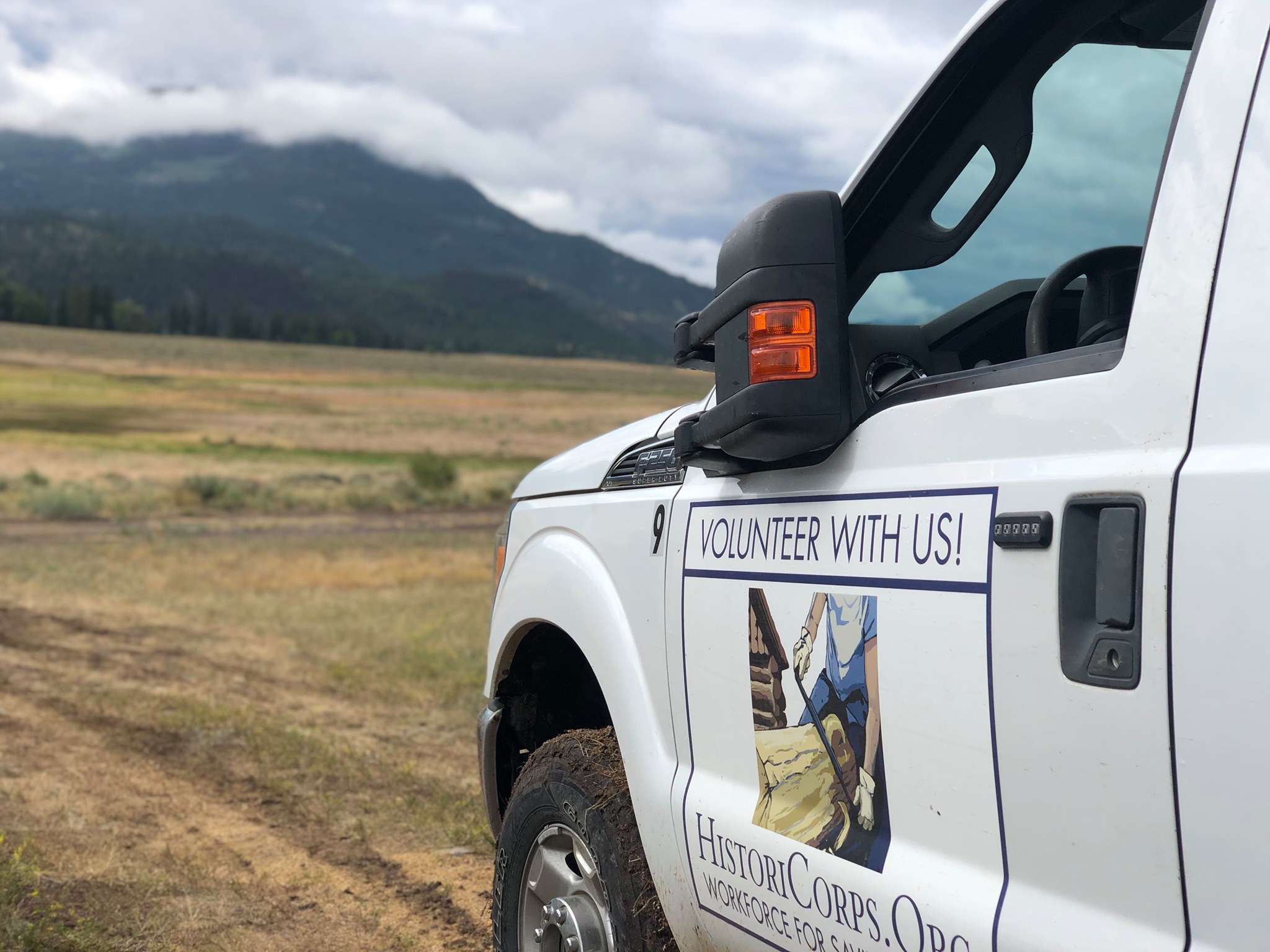
When construction crews come to mind, we tend to envision a group of men in orange vests doing the heavy lifting. But at the Chenocetah Fire Lookout Tower restoration project, where Colorado-based historic preservation crew HistoriCorps will restore the fire tower, the process is being led by two women, Ariel Clark and Liz Rice, and a non-binary person, Erin Crooks.
Over their years of experience with HistoriCorps, on construction job sites and with historic preservation, Clark, Crooks and Rice have seen how the industry has changed, bringing more women into the organization and allowing people, regardless of gender, to explore their passions for history.
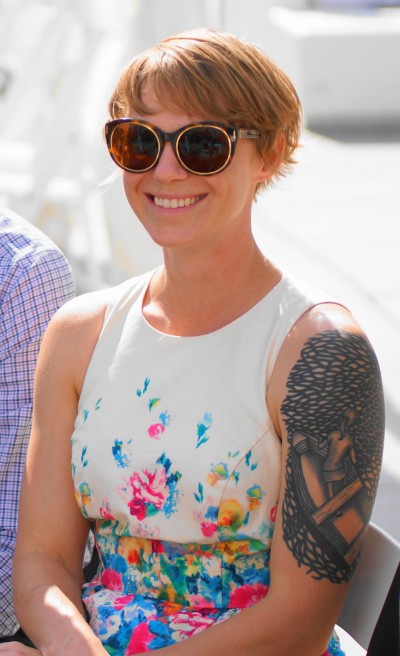
Rice, who serves as Historicorps’s Workforce Manager, says that during her five years with Historicorps, she’s seen the number of women involved in the organization and women volunteering with Historicorps grow.
“When I first started five or so years ago with the organization and really started measuring [volunteer statistics], we had about 35 percent of volunteers who identified as female and then 65 percent who identified as male,” Rice says. “And this year when I ran the numbers, looking back at every year, we’re currently at about a 45-55 split.”
That growing number is a big deal in the construction and preservation industry, which is, for the most part, dominated by men.
“I’ve been on a job as the project manager, or as the onsite supervisor. . . and a subcontractor comes onsite to meet me, but they go straight to one of my helpers, who is a guy,” says Project Supervisor Ariel Clark, who has worked in construction for 9 years. “It [the construction industry] is totally male-dominated, to my dismay.”
Clark was trained in construction work by her father and grandfather and found that historic preservation was her passion after leaving her career as an art director. She now owns her family’s restoration company in Virginia.
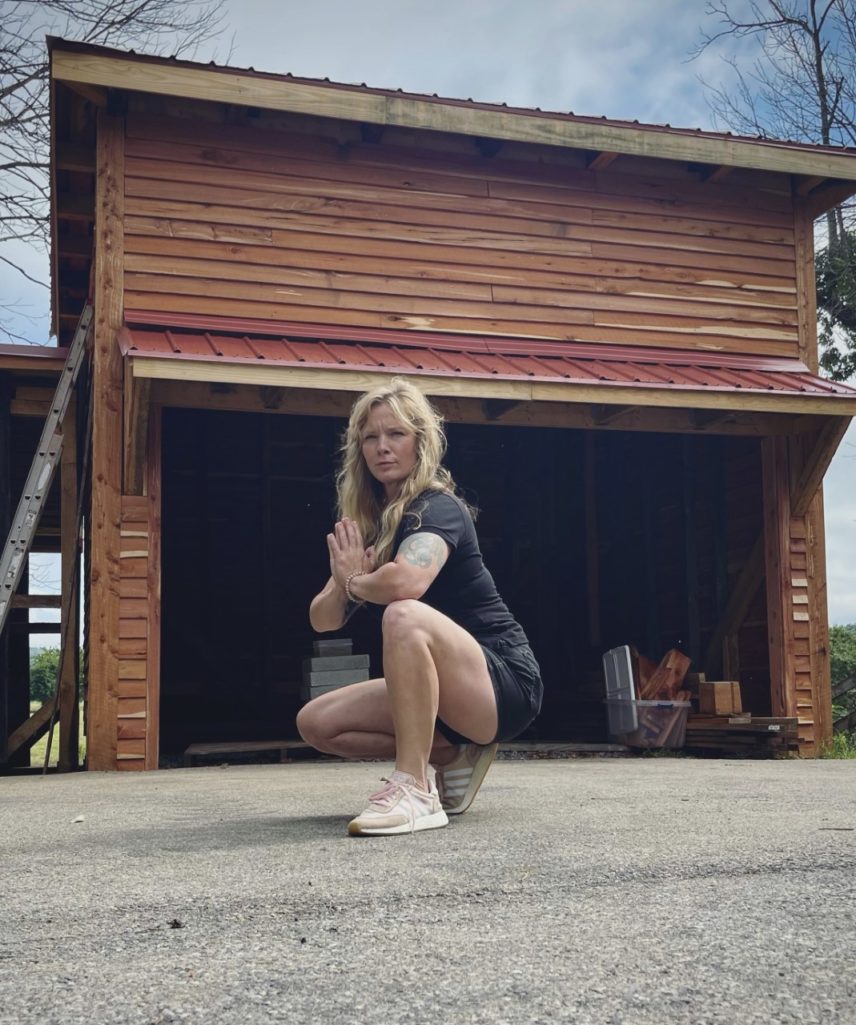
“It’s very difficult to find women who are comfortable going out and doing [construction work],” Clark says. “I don’t think that women are uncomfortable doing physical labor, I feel like it’s probably like a mental game to some degree. It is for myself; assuming a leadership role in this [industry], I tend to play down what I do.”
This isn’t just a problem for Clark in her day job, it’s something Crew Leader Erin Crooks (who uses the pronouns they/them) sees fairly often with older women who volunteer with Historicorps.
Crooks says in their experience, those older women tend to doubt how helpful they can be.
“I find it really interesting, and I don’t think it happens as much with the younger female volunteers, but a lot of times the older women [volunteers] will come onsite and they’ll be like, ‘Oh, well, I’d love to help out during this, this and this, but I don’t really know how helpful I can be,'” Crooks says. “And my answer is always like, ‘you can certainly be helpful, it doesn’t matter what you already know how to do. I’m here to help you.'”
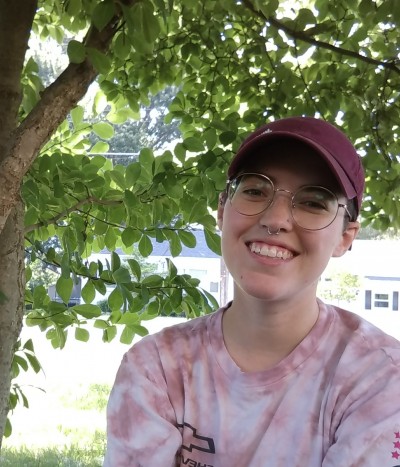
Crooks says they think some of that doubt comes from the generational beliefs those women may have grown up with, or the volunteers hadn’t previously been given the experience to learn about hands-on preservation work. But they say that the women volunteering don’t owe anyone an explanation, and shouldn’t feel that fear of not being helpful.
“It’s just kind of sad to me that they feel like they need to explain that,” Crooks says. “I get it, because the older volunteers, or the women, at least, haven’t been raised to do this kind of stuff usually. So I get it, but you don’t need to explain yourself to anybody. You’re here to volunteer and have a good time.”
Even with the fears women in the preservation industry struggle with, Historicorps’s leaders and coordinators are working to help grow their involvement in their projects. Clark says that women are invaluable to the historic preservation industry, with some of the most experienced academics and detail-oriented preservationists she’s worked with being women.
“I would definitely say that historic preservation, as sort of like its own subsection of construction and contracting, there are pockets where women exist,” Clark says. “It’s not that we don’t exist. It’s that I definitely think that we talk ourselves out of what we’re capable of doing and apologize for being there when we shouldn’t.”
Clark and Crooks will begin their leadership of the Cenocetah Fire Lookout Tower with their team of volunteers on Jan. 9, 2022.






